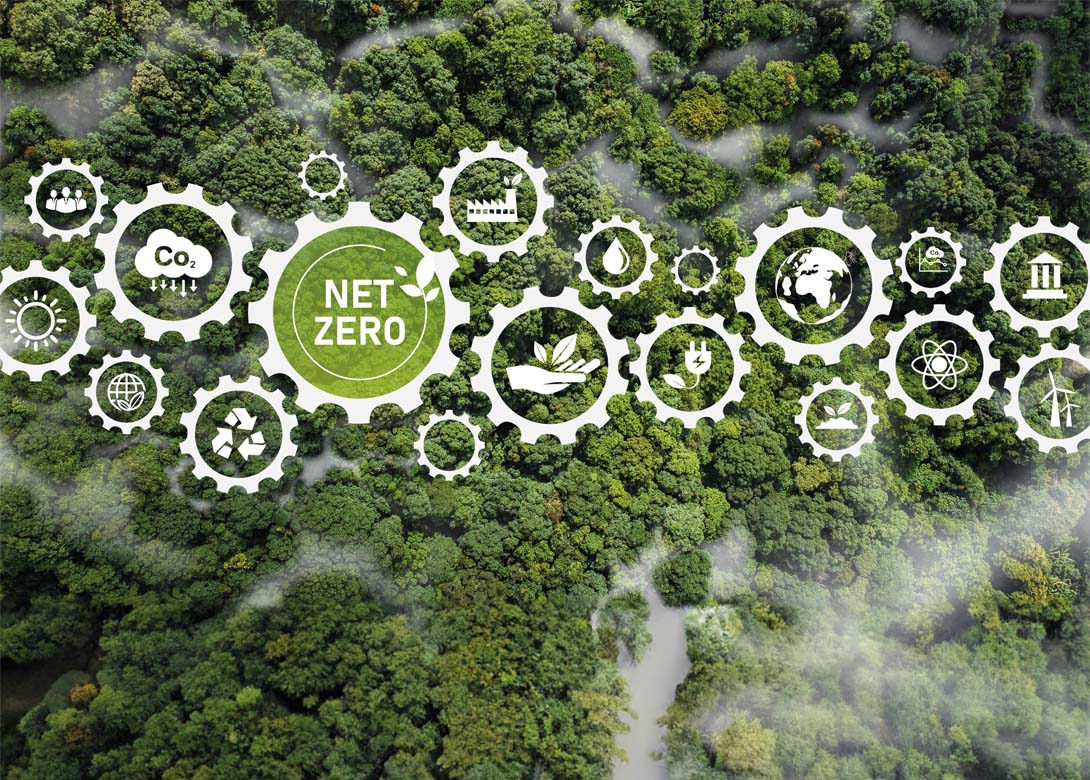
By Sytze Dijkstra, Netherlands country manager, Simply Sustainable
The past few years have been pivotal for corporate sustainability, the topic has firmly established itself high on the agenda of many businesses – even against the backdrop of a turbulent economy and cost of living crisis.
The UN climate conference in Glasgow, UK, in December 2021, was a major milestone. For the first time, the business community was at the table of global climate change negotiations and announced major commitments for emissions reduction. In 2022 and 2023, we have seen adoption of regulation aimed at improving and standardising sustainability reporting and tackling greenwashing. In addition, companies are getting to grips with their emissions reduction agenda and the transition to a low carbon economy.
Companies have different reasons for focusing on sustainability, but many are driven by a combination of three trends:
• Stakeholders such as customers, employees and communities are becoming more aware of the importance of sustainability issues. They are increasingly demanding greater transparency and accountability from companies on these issues.
• Global governments have begun to introduce regulations and guidelines for sustainability reporting, as well as specific regulations for sustainable product design, packaging and waste management, among others.
• There is growing evidence that companies with strong sustainability practices may be more resilient to risks and have better long-term financial performance. Investors and analysts are increasingly using environmental, social and governance (ESG) information to assess a company’s overall risk and potential return.
Sustainable business in 2023
Corporate sustainability refers to how a company manages environmental, social and governance topics. Environmental criteria considers how a company performs as a steward of nature. Social criteria examines how it manages relationships with employees, suppliers, customers and the communities where it operates. Governance deals with a company’s leadership, executive pay, internal control and shareholder rights.
Sustainability is not a new topic for the business community. Many companies already have initiatives in place to reduce CO2 emissions, for example, or to use raw materials more efficiently. Packaging has been an increasing focus for companies in manufacturing, logistics, wholesale, and retail. With companies looking into the possibilities for packaging solutions with a lower environmental footprint. This can include switching to more sustainable materials (e.g paper instead of plastics), using recycled content, and developing business models for multiple use or even packaging as a service. 
These initiatives are important, and many are delivering a positive impact. However, what many companies lack is a systematic and strategic approach to their sustainability agenda. Consequently, sustainability initiatives remain fragmented, piecemeal and progress is not measured. As a result, people may question their relevance to the business.
Over the past few years, however, many companies have come to realise that sustainability is, quite literally, about the ability to ‘sustain’ their business activities in the future. It addresses real and increasingly urgent risks and opportunities that can have a material impact on a company’s operations.
A robust sustainability strategy mitigates negative impacts of the business activities on society or the environment that, if left unchecked, could come back to bite. Think about resource depletion that will damage a company’s ability to source the materials that it needs. Equally, it anticipates and manages risks and opportunities that developments in society and the environment present to the business. Risks may include disruption of company operations due to climate related extreme weather events, while the transition to a low carbon economy presents opportunities for new products and services.
In short, sustainability has become a strategic topic that can make or break the commercial success of a business. With this, its scope has broadened significantly. Sustainability is now about much more than reducing GHG emissions or tackling plastic waste. There is a whole range of environmental, social and governance issues that could affect – positively or negatively – the success of a company in the medium term. In fact, the new European Corporate Sustainability Reporting Directive (CSRD) lists almost 100 sustainability topics, sub-topics, and sub-sub-topics, that companies should consider in their sustainability strategy – ranging from biodiversity to human rights, soil health, anti-corruption and social inclusion.
The sector and place in the value chain are a major factor in determining which sustainability topics are most important for a company. For manufacturers, there are important sustainability topics related to the sourcing of materials; considering the emissions, water, and resource footprint of their production; as well as labour conditions of workers in the supply chain and risks of human rights abuses, child labour or corruption.
Other sustainability topics relate to the environmental and social impacts of the manufacturing process itself and the use of the product, particularly waste and resource use. For distributors, sustainable and responsible sourcing is also an important topic, as well as the carbon footprint of logistics.
What is a good sustainability strategy?
As sustainability has increasingly concrete implications for business success, companies must address it as part of their business strategy. By looking at the theme through a strategic lens, companies can determine where sustainability creates opportunities for the company, and where there are risks that it must anticipate.
A robust sustainability strategy is unique to the company and is integrated with the commercial strategy. It responds to the expectations of stakeholders and is in-line with recognised sustainability guidelines. It sets a clear ambition that recognises the scale and urgency of global sustainability challenges. It also introduces concrete actions and initiates a change in how the company operates.
How to get started
With the broadening scope, increasingly commercial relevance, and high stakeholder expectations, sustainability is an increasingly complex topic for companies to tackle. Luckily, there is an increasing body of guidance and ‘best practice’ – meaning that companies that start their sustainability journey today can build on the experience of those that already have a robust sustainability strategy.
Developing a robust corporate sustainability strategy typically involves five steps:
1. Prioritise and focus on the most important sustainability topics for your business: A ‘Double Materiality’ assessment is the recognised ‘best practice’ approach for identifying the priority sustainability topics. It offers an analytical process designed to help companies assess the relative importance of environmental, social and governance and sustainability issues so they can focus company resources and disclosures on what really matters.
2. Measure your baseline: A robust sustainability strategy takes into account the starting point of the business, against which targets can be defined and progress can be measured. Carbon footprinting is the most common and well known example of setting a baseline. However, it is equally important to have a sound measurement of a company’s starting point on other strategic sustainability topics, be it diversity in the workforce or plastic waste generation.
3. Set targets, KPIs and measures to achieve these: Once a company has defined its strategic focus for sustainability, it needs to decide the ambition level it wants to adopt. Does it want to be leading in its sector on specific topics, or does it feel more comfortable to move with the majority of its peers? The ambition level then needs to be translated into concrete, measurable targets and KPIs, aligning with ‘best practice’ guidelines, such as the Science-Based Target Initiative (SBTi), and applicable regulation, like the EU Corporate Sustainability Reporting Directive (CSRD). With the targets in place, the company can focus on developing the plans that will help it address its strategic sustainability priorities by overcoming challenges and leveraging opportunities.
4. Define the governance of sustainability in the organisation: Setting out a clear sustainability governance process and determining appropriate resourcing of the strategy are prerequisites to the successful integration of sustainability into the business. This involves allocating responsibilities for sustainability at board level; agreeing on roles and responsibilities for strategic sustainability priority topics; and establishing internal and external reporting structures.
5. Measure and report progress: Companies can only make progress against their sustainability targets if they regularly measure progress. Increasingly, companies decide to report on their progress externally, because of stakeholder expectations and regulatory requirements. In Europe, the EU Corporate Sustainability Reporting Directive is a game changer for corporate sustainability reporting. It will require ESG reporting on a level never seen before, capturing a whole host of companies that previously were not subject to mandatory nonfinancial reporting requirements, including public and private non-EU companies that meet certain EU presence thresholds.
The key to business success
Sustainability strategies in businesses have changed radically in the last five years. With the increase in stakeholder expectations and regulation, companies are now finding that a robust sustainability strategy is critical for their business. Starting a sustainability strategy journey may be daunting, but companies can build on decades of experience, and an increasing body of expertise, highlighting how sustainability can contribute to a company’s success.
About Simply Sustainable
Simply Sustainable is an award-winning ESG and sustainability consultancy, with offices in the UK and the Netherlands, focussed on delivering ambitious but achievable sustainability strategies, reporting and communications, as well as climate, carbon and net zero plans for our broad range of clients. As a recognised thought leader, the company’s highly qualified and experienced consultants provide tailored sustainability services, as well as deep expertise.
Working across all sectors and through holistic, reliable and innovative methodologies, Simply Sustainable seeks to understand a business, its people, its stakeholders, and ultimately, its impact. We help navigate the demands of ever evolving regulations, changing demographics, and provide intuitive insights and resilient solutions that create advantages for both business and society.
simplysustainable.com

Will joined Fastener + Fixing Magazine in 2007 and over the last 15 years has experienced every facet of the fastener sector - interviewing key figures within the industry and visiting leading companies and exhibitions around the globe.
Will manages the content strategy across all platforms and is the guardian for the high editorial standards that the Magazine is renowned.
Don't have an account? Sign Up
Signing up to Fastener + Fixing Magazine enables you to manage your account details.